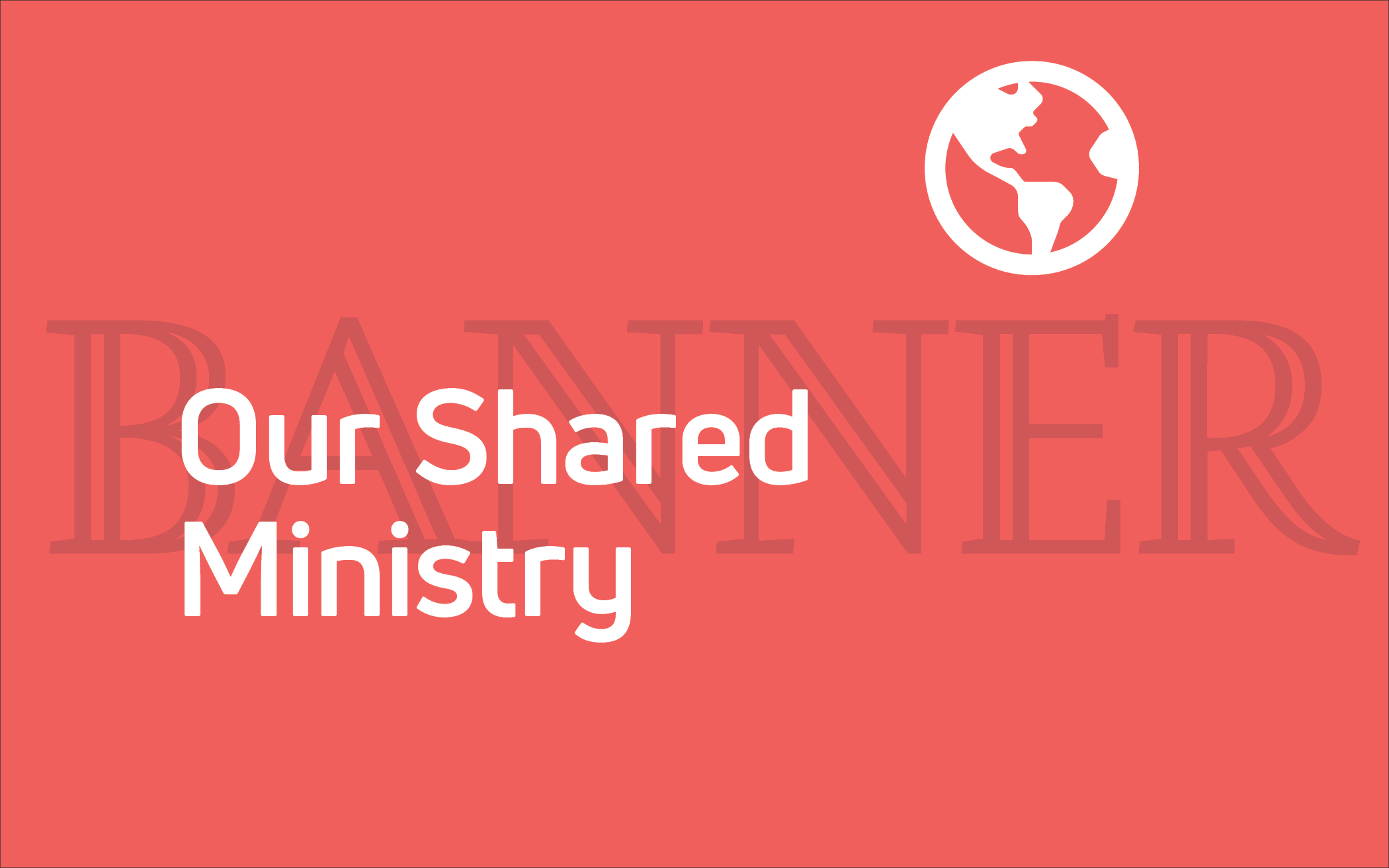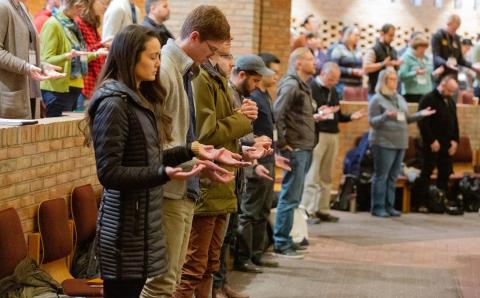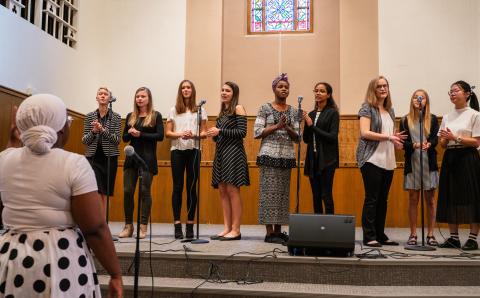Every five years, synod adopts a new ministry plan to help guide congregations and ministries in a unified direction that we believe is Spirit-led. This plan is developed in part by listening to members and congregations across North America and learning of the needs they express.
Based on recent listening sessions, the following statement is emerging as one of four priorities for a ministry plan that will be presented to Synod 2020 in June:
Our church is praying, reading Scripture, and practicing other spiritual disciplines, historical and new, transforming our lives and communities for Christ by the power of the Holy Spirit.
What is it about our current climate and demographic makeup that causes us to express a desire to be a church that evidences this posture even more?
To answer this, let’s recall that an emphasis on spiritual disciplines has always been part of our identity. The Christian Reformed Church of North America is a denomination of immigrants, and its earliest members were influenced by events in the Netherlands back in 1834. At that time, some Reformed believers broke away from the Dutch state church, believing the church needed to focus more on congregants’ personal relationships with God. This breakaway was called the Afscheiding, a word that simply means separation or split. Yet we often refer to those who separated as part of the pietist dimension of our history.
About 50 years later, Abraham Kuyper—a pastor, writer, and Dutch prime minister—led a second movement that shapes us today. It was called the Doleantie (to feel sorrow) movement due to its followers’ perception of the Dutch state church becoming too liberal. Moreover, with Kuyper as a key leader in this movement, the importance of worldview and a transformationalist understanding of Christ and culture became a significant dimension of this chapter of church history in the Netherlands.
These two movements came together in 1892 to become the Reformed Churches in the Netherlands (Gereformeerde Kerk), which in turn shaped the CRCNA with an emphasis on a personal relationship with God and the need to be transformed by this relationship in a way that influences everything we do.
As part of a wave of immigration from the Netherlands after the Civil War in the U.S., I suspect my ancestors were formed more by the Afscheiding, having immigrated here before the start of the Doleantie. In contrast, the part of the CRC formed by post-World War II immigration (much in Canada and some in the U.S.) certainly benefited from the Doleantie as well.
But our CRCNA identity doesn’t stop with these Dutch influences. We continue to be a denomination of immigrants, and our Korean members are a great example. Historical events in Korea have shaped and continue to shape Korean CRC members in Canada and the United States in a way that demonstrates a robust dependence on prayer. This, too, has an influence on our entire denomination.
The recent influx of Korean immigrants into the CRC has shown us the value of depending on prayer. Prayer Summits hosted by some of our Korean CRC brothers and sisters, for example, have awakened all of us to greater engagement in prayer and the spiritual disciplines, reclaiming the earlier part of our identity.
This is especially true in 2020 as we face challenging and confusing times. As we consider new moral and ethical dilemmas, struggle to build civil relationships in a polarizing political environment, and strive to sift through the deluge of information coming at us 24 hours a day, we recall the important posture of being on our knees—being reliant upon God and our prayer life with God.
I suspect that in an increasingly secularized society, we are sensing the need to be the Christian family together, linking arms with those from the past and other traditions. And so, we rekindle our long-held practices and learn from other Christian brothers and sisters whose traditions are rich in the spiritual disciplines. In so doing, we are increasingly living into Jesus’ prayer for all believers: “that all of them may be one, Father, just as you are in me and I am in you. May they also be in us so that the world may believe that you have sent me (John 17:21).
About the Author
Steven Timmermans served as the executive director of the Christian Reformed Church in North America from 2014 to 2020.
Steven Timmermans se desempeñó como director ejecutivo de la Iglesia Cristiana Reformada en América del Norte de 2014 a 2020.
Steven Timmermans는 2014 년부터 2020 년까지 북미에서 기독교 개혁 교회의 집행 이사로 재직했습니다.







